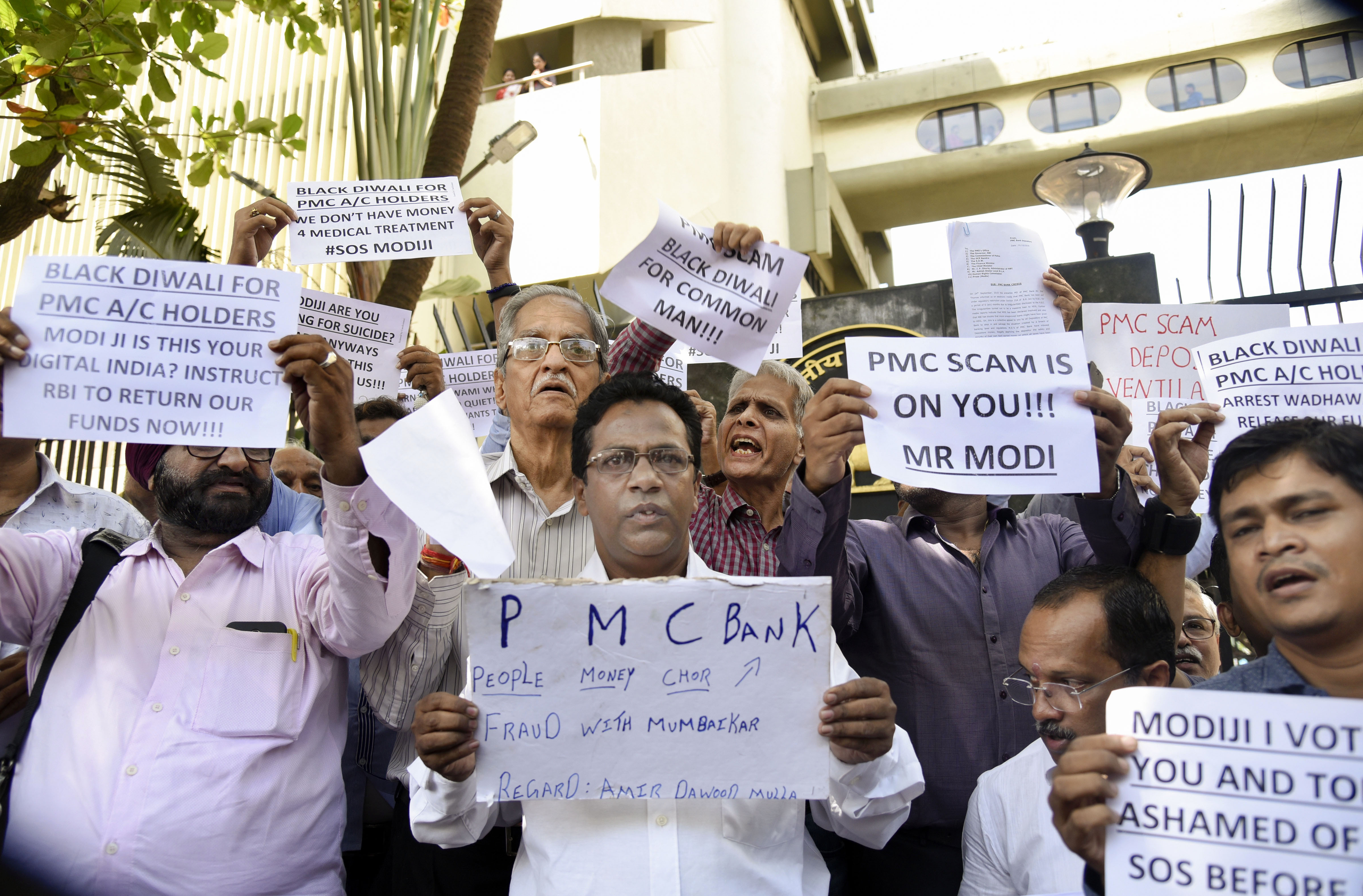The suspended managing director of Punjab and Maharashtra Cooperative (PMC) Bank, Joy Thomas, has blamed the auditors for the mess at the bank, accusing them of only 'superficially auditing' the books of the now crippled lender due to 'time constraints.'
In a five-page letter to the Reserve Bank of India dated September 21 after a board member blew the lid on the fraud at PMC, Thomas confessed to the role of the top management, including a few board members, in hiding the actual NPA numbers and also the actual exposure to the bankrupt HDIL, which is stated to be around Rs 6,500 crore or over 73 per cent of its total loan book of Rs 8,880 crore.
While Thomas has not named any auditor in the letter to the RBI written two days before the regulatory clamp down, which PTI has reviewed, according to its annual report for FY19, the bank had three auditors – Lakdawal & Co, Ashok Jayesh & Associates and DB Ketkar & Co since FY11.
Emails from PTI sent to all these auditors did not elicit any replies even after 24 hours.
The shallow auditing of the books of PMC, which is among the top ten urban cooperative banks, by its statutory auditors was done as the 'bank was growing', Thomas claimed in the letter.
Thomas' letter is part of the FIR filed by the economic offence Wing of Mumbai police on Monday. The FIR names Thomas, PMC chairman Waryam Singh and the promoters of the HDIL and related entities.
'Since the bank was growing, the statutory auditors, due to their time constraints, were checking only the incremental advances and not the entire operations in all the accounts,' Thomas claimed in the letter.
'The statutory auditors validated the incremental loans and advances and scrutinised the accounts which were shown to them by the bank,' he added.
In the past eight years, PMC had three statutory auditors – Lakdawal & Co (FY19 and FY18); Ashok Jayesh & Associates (FY17, FY15, and FY11) and DB Ketkar & Co (FY14 and FY12).
Thomas confirmed that the exposure to the bankrupt HDIL group continued to remain standard despite a delay in repayments for over three years. The bank's exposure to HDIL group was around Rs 6,500 crore as of September 19, 2019, he admitted in the letter.
He said some of the large accounts were not reported to the RBI from 2008 because of fear of reputational risks.
'The concealment of information from the board, auditors and regulators was due to the fear of reputational loss,' Thomas informed the RBI.
He said prior to 2015, a few top borrowers would be mostly checked as reported by the bank branch-wise, therefore those accounts did not come into the picture and it was around 2017 onwards when the RBI started asking for details of the advances.
Reacting to the alleged role of auditors in the PMC Bank crisis, Chartered accountants' apex body ICAI has sought information from the RBI and other authorities to check whether any auditor was involved in the alleged financial irregularities at the lender.
Taking note of the 'enormity of the matter,' the Institute of Chartered Accountants of India said it has triggered its disciplinary mechanism and has written to the bank as well as regulatory agencies concerned.
In a statement, the institute said it has sought requisite details of their findings as well as that of any 'member/firm alleged to be involved in the matter.'
Information has also been sought from the statutory auditor of the bank 'pertaining to financial years 2017-18 and 2018-19,' it added.
'ICAI would be actively pursuing the issue with the regulators concerned so as to examine the matter in detail and would also take action through its proactive disciplinary process against any member, if so, found to be involved in the matter,' the statement said.
The problems at the Punjab and Maharashtra Cooperative (PMC) Bank came to light after a whistle blower complaint, following which the Reserve Bank of India, on September 23, placed the lender under an administrator. The RBI has also barred the bank from carrying out regular banking activities.











